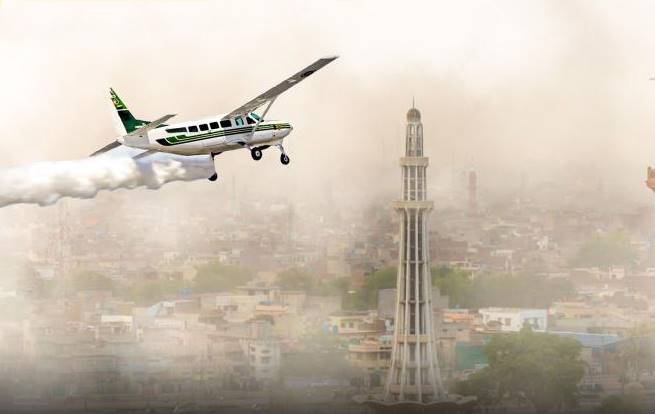Lahore continues to remain world’s most polluted city, as air pollution and weather conditions combine to shroud the city of 22 million in smog, disrupting major road closures, schools shut down, and even prompted to consider artificial rain.
Despite the meeting, buzz and worsening conditions, the Punjab government’s plans to create artificial showers in the city are not working.
It has been learnt that the plan of the provincial administration has been delayed for weeks due to technical issues that hamper the execution of artificial rain this month. Officials are reportedly not satisfied with the performance of experts involved in project.
Furthermore, the unavailability of the state’s jet significantly contributed to the delay in artificial downpour.
In this regard, the government also tried contacting a Dubai-based company with expertise in cloud ionization and cloud seeding. A working group comprising representatives of relevant federal, and provincial departments and military organizations was also formed to execute the project.
Working group formed for artificial rain in Lahore
What is Artificial Rain
Artificial rain is a weather modification technique used to induce showers by introducing various substances into clouds that serve as cloud condensation or ice nuclei, which encourage the formation and growth of precipitation particles.
The most common substances used for cloud seeding include silver iodide, potassium iodide, and liquid propane.
Cloud seeding is typically done using aircraft, ground-based generators, or rockets. The effectiveness of artificial rain or cloud seeding can vary, and it is subject to factors such as cloud type, temperature, and atmospheric conditions. While some studies suggest that cloud seeding can enhance precipitation under certain conditions, the overall effectiveness and long-term environmental impact are still subjects of ongoing research and debate.










